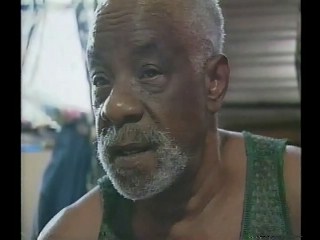
Bertie Marshall
Global - One of the Trinidad and Tobago dailies a few days ago carried a report about pan visionary Bertie Marshall being hospitalized, supposedly because of issues arising from the diabetes problem he has battled for some years now. Given my own personal connection to Bertie and involvement with Highlanders back in the 1960s, I was of course instantly drawn to such news, and have since endeavored to get the assurance that Bertie’s condition was being given proper professional attention.
My gratitude for the newspaper thinking to run this report on Bertie’s health was however tempered a bit by something that was listed among his contributions to pan culture. Someone or something called Pan Buzz seemed to be the primary source for the report, and a reference to Bertie’s pioneering work in the amplification of pans distortedly noted that this was called “Chinee music.” It was clear that Pan Buzz, if that was indeed the source, was uninformed about this particular aspect of the Highlanders role in T & T pan history and was unfortunately misdirected to report as documented fact what was in truth typical Trinidadian mamaguy.
“Chinee music” was a derisive characterization some wiseacre came up with as a putdown for what Bertie had ingeniously embarked upon. Such disparagement of any novel idea brought to the evolving pan story was not uncommon in the fierce parochial loyalties of the steel band world at the time (truth be told, a condition that still exists, with perhaps less edge today to that tribalism-fueled intolerance). In the case of Bertie’s exploration of amplification that began in the early 60s, it was, like any other foray into new territory, not without kinks to be eliminated. His experimentation with a variety of contact microphones was a part of that process. But, gifted as he was, Bertie would find a way to get the better of such challenges. Proof of this exists, thankfully, in the recordings of many pieces which featured amplified pans. “Every Valley Shall Be Exalted,” “If I Loved You” and a slew of others ought to have been seen for what they represented – one man’s perceptive engagement of the problem pan sides would very soon be encountering, namely, being no match, as acoustic instruments, in competition with deejays and conventional bands in the battle for play in the entertainment arena.
Rather than give credit for and possibly bring something to the path charted by Bertie, many a band or pan community latched onto the unfounded notion that “steel bands don’t need amplification.” Thus would the “Chinee music” jeer be sustained among the ignorami. And thus would today, someone perhaps younger, or at least disconnected from pan happenings of the era, run with the fallacy that “Chinee music” was some sort of formal appellation for the amplification enhancement conceived by Bertie Marshall and introduced by Highlanders. No, Pan Buzz and others similarly misinformed; it was not. “Chinee music” is an illustration of the T & T pan world, in insular fashion, looking backwards, rather than seizing the moment and looking progressively ahead at an innovation that would likely have produced positive evolutionary impact to pan’s journey in the land of its birth.
contact: Les Slater
click for more on Bertie Marshall
Leave a comment
in
the
WST forum





